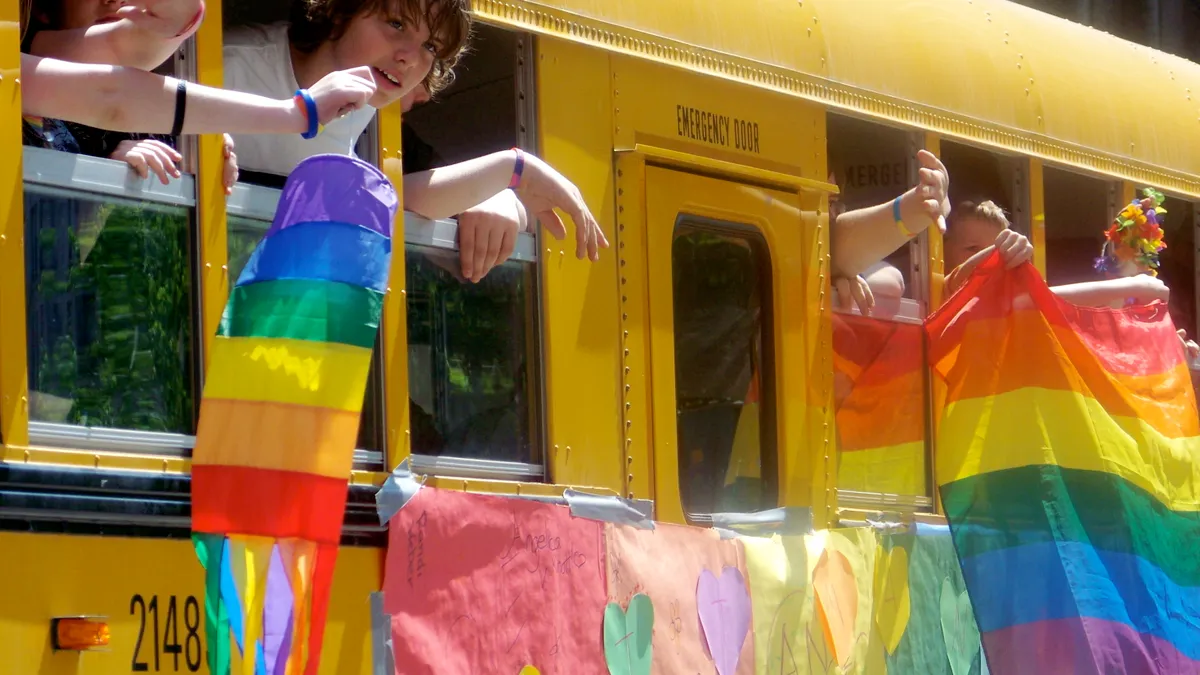Dive Brief:
-
Access to LGTBQ+ related books and resources in schools decreased in 2021 compared to 2019, when access was the highest, according to a new report on LGBTQ+ student experiences in public schools released Tuesday by GLSEN. The organization, which advocates for inclusive public schools for LGBTQ+ students, surveyed students between April and August 2021.
-
Students also reported seeing fewer instances of positive LGBTQ+ material in classroom lessons in 2021 than in 2019, even though these curricular supports were already uncommon.
-
In 2021, the percentage of students who reported having many LGBTQ+ supportive school personnel also dipped from recent years, specifically 2013-2019.
Dive Insight:
The report, which surveyed 22,298 students ages 13-21, comes amid an increase in classroom censorship laws limiting how and whether teachers discuss LGBTQ+ related issues. Some of these laws have turned punitive, creating an environment of fear and discouraging teachers from fully supporting their LGBTQ+ students.
In Florida, for example, the state Department of Education recently proposed a rule under which teachers could lose their licenses for intentionally discussing issues related to gender identity and sexual orientation in K-3 classrooms. The move follows a state law enacted this year banning discussion of LGBTQ+ issues in the earlier grades.
Having access to these resources, however, can make LGBTQ+ students feel safe in the classroom and can also result in improved academic performance, like higher GPAs and greater likelihood of pursuing postsecondary education, said Melanie Willingham-Jaggers, executive director of GLSEN.
"Young people need supportive instructors, especially queer youth who might not have supporting guardians at home and may feel alone or isolated," Willingham-Jaggers said. However, anti-LGBTQ+ legislation "push[es] harmful narratives and blatantly strip schools of important supportive resources."
The latest National School Climate Survey from the organization suggests a decline in the availability of key resources in recent years. "In the face of anti-LGBTQ+ laws, we can’t afford to see resources decline further," Willingham-Jaggers said.
Though students seek support from the adults in school buildings, the report showed 58% of students reported hearing homophobic remarks from their teachers or other school staff. Additionally, 72% of students reported hearing school staff make negative remarks about how students expressed their gender.
According to the report, LGBTQ+ students who experienced higher levels of in-person victimization because of their gender were more than twice as likely to have missed school in the past month than those who experienced lower levels, 60.3% versus 24.4% .
These students also had lower GPAs and were twice as likely to report that they did not plan to pursue postsecondary education.












